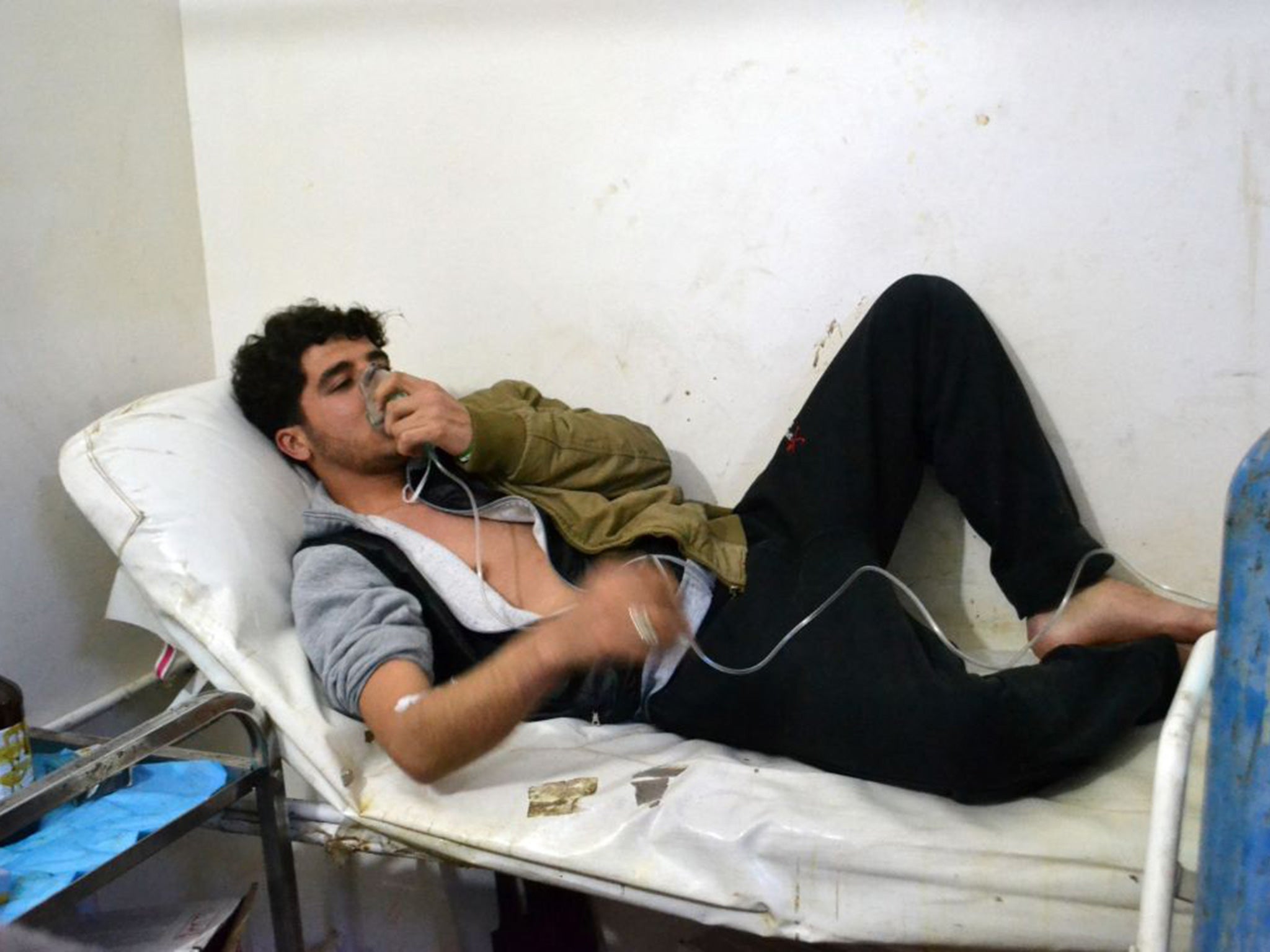War in Syria: Isis used mustard gas in Syrian town Marea ‘which killed a baby’
Kurdish authorities saay Isis fired mortar rounds containing mustard agent at Kurdish Peshmerga fighters in northern Iraq

Your support helps us to tell the story
From reproductive rights to climate change to Big Tech, The Independent is on the ground when the story is developing. Whether it's investigating the financials of Elon Musk's pro-Trump PAC or producing our latest documentary, 'The A Word', which shines a light on the American women fighting for reproductive rights, we know how important it is to parse out the facts from the messaging.
At such a critical moment in US history, we need reporters on the ground. Your donation allows us to keep sending journalists to speak to both sides of the story.
The Independent is trusted by Americans across the entire political spectrum. And unlike many other quality news outlets, we choose not to lock Americans out of our reporting and analysis with paywalls. We believe quality journalism should be available to everyone, paid for by those who can afford it.
Your support makes all the difference.Inspectors have confirmed that mustard gas was used in Syria during fighting earlier this year, in areas that suggest Isis was responsible.
The confidential report by the Organisation for the Prohibition of Chemical Weapons (OPCW), which was leaked to the Reuters news agency, says that sulphur mustard – commonly known as mustard gas – was used in the town of Marea on 21 August.
“It is very likely that the effects of sulphur mustard resulted in the death of a baby,” it said. At the time, Isis and moderate rebel groups were fighting for control of the town, situated north of Aleppo. The OPCW was not mandated to apportion blame.
The report raises worrying questions about how much of the deadly agent Isis may have in its possession, and where else it might be used.
“[The report] raises the major question of where the sulphur mustard came from,” said a source close to the report who spoke to Reuters. “Either [Isis] gained the ability to make it themselves, or it may have come from an undeclared stockpile overtaken by Isis. Both are worrying options.”

Earlier this month, Kurdish authorities said Isis fired mortar rounds containing mustard agent at Kurdish Peshmerga fighters in northern Iraq during clashes in August. They said blood samples taken from dozens of fighters who were exposed in the attack showed “signatures” of mustard gas.
Other reports suggest there were several incidents between March and May of 2015 which “likely involved the use of toxic chemicals”, including chlorine in Idlib province, south of Aleppo. The incidents been attributed to government forces.
“Witnesses reported hearing helicopters overhead at the time the chemical munitions exploded. Only the Assad regime has helicopters,” US State Department spokesman John Kirby said of the attacks, which killed six members of the opposition forces.
The Syrian government said it has destroyed its own stockpile of chemical weapons, under an agreement which was brokered between the US and Russia after the Assad regime used the nerve agent sarin in 2013. US President Barack Obama had previously said that the use of chemical weapons was a “red line” and would lead to military intervention by the US.
The use of chemical weapons contravenes the UN Security Council resolutions, and the 1997 Chemical Weapons Convention. While the OPCW report confirms the use of mustard gas in Marea, the group says it cannot confirm whether the agent was used by Isis on other occasions.
Earlier this week, the Syrian army, with the help of Iranian troops fighting alongside them, took a key supply route to Aleppo. The government has launched a major assault on the city, Syria’s largest, which is held by various groups.
The government suffered a setback on Thursday, however, when it lost control of the town of Morek, which lies on the main road between Aleppo and Hama to the south.
France announced today that it was deploying its aircraft carrier, Charles de Gaulle, to the eastern Mediterranean to help in the fight against Isis. France joined strikes against Isis targets in Syria last month.
Join our commenting forum
Join thought-provoking conversations, follow other Independent readers and see their replies
Comments